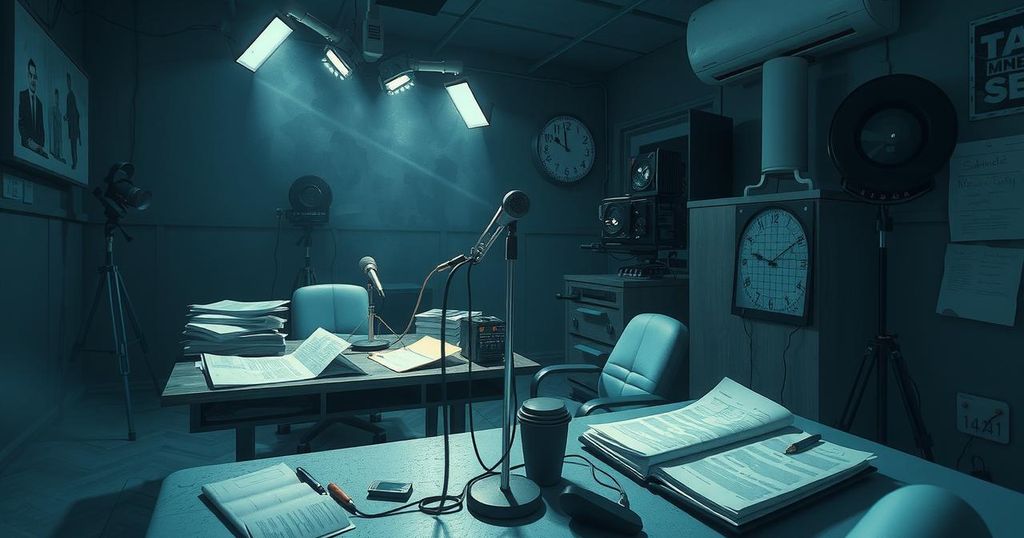Challenges to Press Freedom in the DRC: A Journalist’s Perspective
In the Democratic Republic of Congo, journalists face significant threats to press freedom, exemplified by Philip Mayifilua, who was forced to flee after being accused of supporting a rebel group. The broader conflict has led to increased self-censorship and financial hardships among journalists. Amidst this turmoil, support from organizations like the Ukweli Coalition is essential, fostering cross-border reporting initiatives to navigate the complexities of the current media landscape.
In February, journalist Philip Mayifilua highlighted the challenges of press freedom in the Democratic Republic of Congo (DRC) during a radio show, which unexpectedly led to threats of arrest from the Higher Council for Audiovisual and Communication (CSAC), accusing him of supporting the rebel group M23. Mayifilua fled to Uganda following the threats, marking yet another episode in his tumultuous career influenced by governmental suppression and violence against journalists.
His plight coincided with the CSAC’s criticisms of several French media outlets for biased reporting amid the ongoing conflict, further exacerbated by the M23’s recent takeover of Goma on January 27. The United Nations reports over 2,900 fatalities and 500,000 displaced individuals due to the conflict, showcasing the dire situation for Congolese journalists who repeatedly face arrests and intimidation.
Journalists in the DRC navigate between a repressive government and the hostile M23 rebels, both of whom restrict information related to the conflict. Several media outlets have shut down, and Al Jazeera faced suspension by the CSAC. Reports indicate journalists have been harassed and threatened, while many have been forced to flee the country, exacerbating the challenges of covering the crisis.
Freelance journalist Dame Tuluka recounted her ordeal after being arrested by Rwandan customs agents while seeking medical treatment for a family member. She endured threats of violence and psychological trauma during her detainment, solidifying fears among journalists of being targeted due to their profession.
Due to fear of repercussions, journalists increasingly practice self-censorship, avoiding coverage of sensitive topics like military misconduct, sexual violence, or theft associated with local militia groups. This silence not only curtails vital reporting but also leads to severe financial stress for journalists, as illustrated by Tuluka, who has struggled to support her family due to a lack of income.
Gilbert Bukeyeneza, founder of the Ukweli Coalition, stresses that journalists face immense pressure from both the government and rebel factions to conform to their narratives, undermining the independence of the media. In a bid to support them, he advocates for prioritizing safety and initiating collaborative cross-border reporting initiatives involving journalists from multiple countries to address the complexities of the conflict.
Despite the challenges, Mayifilua’s return to the DRC signifies his unwavering commitment to journalistic integrity. He and his peers aim to champion free press principles, emphasizing the importance of truthful reporting in the face of adversity and repression, as they persist in their crucial roles within a fractured society.
The struggles faced by journalists in the Democratic Republic of Congo are compounded by threats from both the government and rebel factions, resulting in severe constraints on press freedom. These challenges lead to self-censorship and financial difficulties among media professionals. Organizations like the Ukweli Coalition are advocating for the protection and support of journalists, promoting cross-border collaborations to enhance reporting amidst these conflicts. The dedication of journalists like Philip Mayifilua and Dame Tuluka underscores the relentless pursuit of truth in dangerous circumstances.
Original Source: ijnet.org




Post Comment